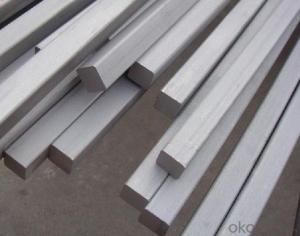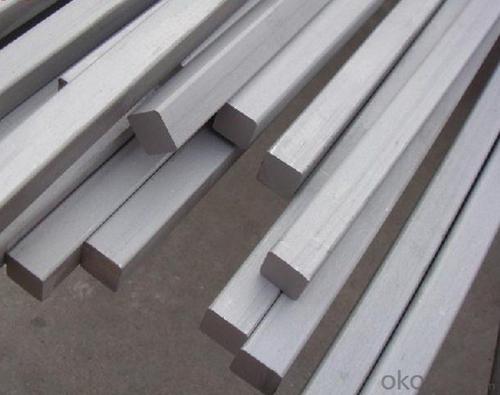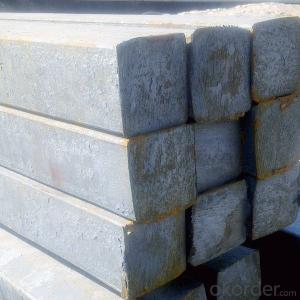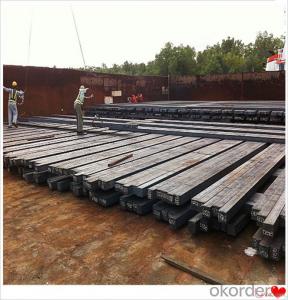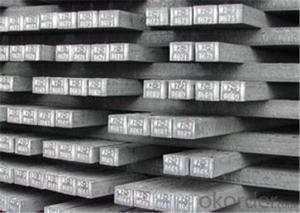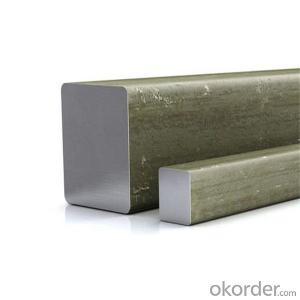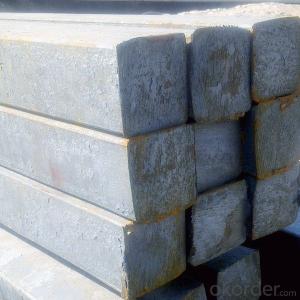Mild Steel Billet for Selling in 3SP,4SP,5SP
- Loading Port:
- Tianjin
- Payment Terms:
- TT or LC
- Min Order Qty:
- 100 m.t.
- Supply Capability:
- 3000 m.t./month
OKorder Service Pledge
OKorder Financial Service
You Might Also Like
Mild Steel Billet for Selling in 3SP,4SP,5SP
Structure of Mild Steel Billet
Grade: mild steel 3sp 4sp 5sp
Dimensions: 100mmx100mm
Standard: AISI, ASTM, BS, DIN, GB, JIS, steel billet
Steel billet length:: 3m-12m
billet steel grade:: 3sp 4sp 5sp q235 q195 q255 q275 20mnsi
Main Features of Mild Steel Billet
Type : | Square steel billet |
Steel Grade: | 3sp 5sp q195 q235 q255 q275 20mnsi ,astm a615 gr.60 |
Size: | 60x60mm-150x150mm |
Length: | 2m-12m . |
Processing: | Hot rolled continous cast. |
Application: | Wire rod , rod , deformed bars , profile steel , mechine parts , and steel mould ect . |
Packing: | Loose Packing. |
MOQ: | 1000Tons |
Delivery Time: | 25days |
Payment: | T/T , L/C,West Union , Cash . |
Trade term: | FOB, CFR, CIF ,EXW. |
Trans term: | FIO ,FILO ,FLT. |
Datas and Detail Information for Mild Steel Billet
Steel billet | |||||
Steel Grade | C(%) | Mn(%) | Si(%) | P(%) | S(%) |
Q235 | ≤0.20 | ≤1.40 | ≤0.35 | ≤0.045 | ≤0.045 |
Q275 | ≤0.22 | ≤1.50 | ≤0.35 | ≤0.045 | ≤0.045 |
20MnSi | 0.17-0.25 | 1.20-1.60 | 0.40-0.80 | ≤0.050 | ≤0.050 |
3SP | 0.18-0.22 | 0.60-0.85 | 0.05-0.30 | ≤ 0.040 | ≤0.050 |
5SP | 0.28-0.37 | 0.80-1.00 | 0.15-0.30 | ≤ 0.040 | ≤0.050 |
Above list some chemical components were other customers requested , pls let us know what steel grade you required?
we can produce according to your needed.
FAQ
Q:Why should choose us?
A:Stable quality ----continous casting hot rolled production techenic, strictly quality control system.
Lower price -------Not the cheapest but the lowest price at the same quality .
Good service -----Satisfactory service within 24hours.
Delivery time ------15-25days for the mass production .
Discount---------------discount base on monthly large quantity purchase in long term.
Pictures:
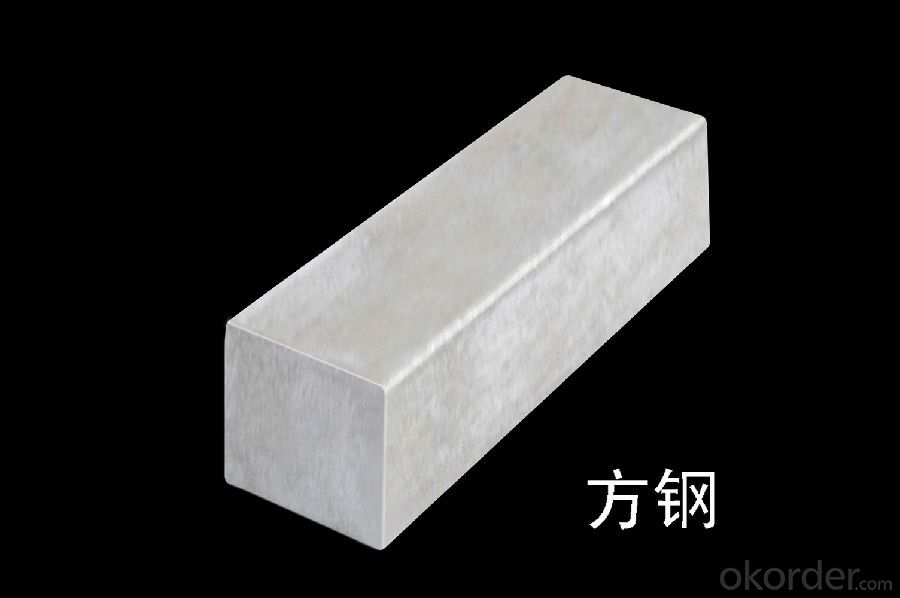
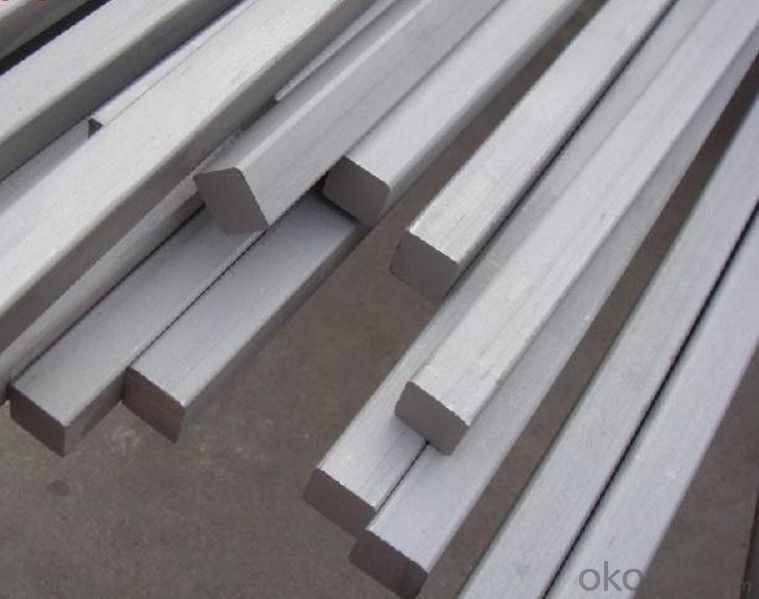
- Q: Can steel pipes be used in earthquake-prone areas?
- Yes, steel pipes can be used in earthquake-prone areas. Steel has high tensile strength and can withstand seismic forces better than other materials. Additionally, steel pipes can be designed to be flexible and resistant to bending and cracking during earthquakes, making them a suitable choice for infrastructure in such areas.
- Q: Are steel pipes resistant to electromagnetic interference?
- Yes, steel pipes are generally resistant to electromagnetic interference due to their conductive properties. The metallic nature of steel allows it to effectively shield against electromagnetic waves, making it a suitable choice for applications where electromagnetic interference needs to be minimized or avoided.
- Q: How are steel pipes resistant to corrosion?
- Steel pipes are resistant to corrosion due to the protective layer formed on their surface. This layer, also known as a passive film, is created through the presence of chromium in the steel. It acts as a barrier, preventing oxygen and moisture from reaching the underlying metal, thus inhibiting the corrosion process. Additionally, steel pipes can also be coated with anti-corrosive materials like zinc or epoxy, providing an extra layer of protection against rust and other corrosive elements.
- Q: What is the maximum length of steel pipes available in the market?
- The maximum length of steel pipes available in the market can vary depending on various factors such as the type of steel, manufacturing capabilities, transportation limitations, and customer requirements. However, in general, steel pipes can be manufactured in lengths of up to 12 meters (40 feet) or even longer. It is important to note that longer lengths may be more challenging to handle and transport, and may require specialized equipment or techniques. Ultimately, the maximum length of steel pipes available in the market will be determined by the specific needs and capabilities of the industry and customers.
- Q: What is the weight of steel pipes?
- The weight of steel pipes can vary depending on their size, thickness, and length. However, on average, steel pipes can range from a few kilograms to several tons in weight.
- Q: Can steel pipes be used for the construction of offshore wind farms?
- Yes, steel pipes can be used for the construction of offshore wind farms. Steel pipes are commonly used for various offshore applications, including the installation of wind turbine foundations, subsea cables, and other infrastructure. They offer durability, strength, and resistance to corrosion, making them suitable for the challenging marine environment. Additionally, steel pipes can be easily fabricated and installed, allowing for efficient construction processes in offshore wind farm projects.
- Q: What are the advantages of using steel pipes in the manufacturing of appliances?
- There are several advantages of using steel pipes in the manufacturing of appliances. Firstly, steel pipes are extremely durable and can withstand high pressures, making them ideal for applications that require strength and resilience. Secondly, steel pipes have excellent corrosion resistance, ensuring that the appliances will last longer without succumbing to rust or degradation. Additionally, steel pipes have a smooth interior surface, which minimizes friction and allows for efficient flow of fluids or gases within the appliances. Lastly, steel pipes are readily available and cost-effective, making them a practical choice for appliance manufacturers.
- Q: How are steel pipes protected against mechanical damage?
- Steel pipes are protected against mechanical damage through various methods such as coating them with corrosion-resistant materials, covering them with protective sleeves or wraps, or installing them in underground or enclosed structures to prevent external impact.
- Q: What are the common methods for inspecting the integrity of steel pipes?
- There are several common methods used to inspect the integrity of steel pipes. These methods are crucial to identify any defects or weaknesses in the pipes that could compromise their structural integrity and potentially lead to failures or leaks. 1. Visual Inspection: This is a basic method where an inspector visually examines the external surface of the steel pipe for any signs of damage, such as corrosion, cracks, or deformities. It is a quick and cost-effective method, but it may not detect internal defects. 2. Ultrasonic Testing (UT): UT is a non-destructive testing method that uses high-frequency sound waves to detect flaws in steel pipes. A transducer sends ultrasonic waves into the pipe, and any reflected waves are analyzed to identify defects like cracks or voids. UT is effective for both internal and external inspections and can provide accurate measurements of defect size and location. 3. Magnetic Particle Inspection (MPI): This method is mainly used to detect surface or near-surface defects in ferromagnetic materials like steel. Magnetic particles are applied to the surface of the pipe, and if there is a defect, the particles will gather around it, creating a visible indication. MPI is particularly useful for detecting cracks and other discontinuities that may not be easily visible to the naked eye. 4. Radiographic Testing (RT): RT involves the use of X-rays or gamma rays to inspect the internal structure of steel pipes. The rays pass through the material, and a radiographic film or a digital detector records the image. This method is effective in detecting internal defects such as cracks, voids, or inclusions. However, it requires proper safety precautions due to the use of radiation. 5. Eddy Current Testing (ECT): ECT is a non-destructive testing method that uses electromagnetic induction to assess the integrity of steel pipes. An alternating current is passed through a probe, creating an electromagnetic field. Any changes in the electrical conductivity or magnetic permeability of the material due to defects are detected by the probe, providing information about the pipe's condition. These are some of the common methods used for inspecting the integrity of steel pipes. Each method has its advantages and limitations, and the choice of inspection method depends on factors such as the type of defect to be detected, access to the pipe, and budget constraints. Regular inspection and maintenance using these methods are crucial to ensure the safe and reliable operation of steel pipe systems.
- Q: How are steel pipes used in the construction of skyscrapers?
- Steel pipes are commonly used in the construction of skyscrapers for various purposes. They are primarily used as structural components, providing strength and stability to the building's framework. Steel pipes are used to create columns, beams, and trusses, which support the weight of the entire structure. Additionally, steel pipes are used for plumbing and HVAC systems, allowing for efficient distribution of water, air, and other utilities throughout the building. Overall, steel pipes play a crucial role in the construction of skyscrapers, ensuring their durability, safety, and functionality.
Send your message to us
Mild Steel Billet for Selling in 3SP,4SP,5SP
- Loading Port:
- Tianjin
- Payment Terms:
- TT or LC
- Min Order Qty:
- 100 m.t.
- Supply Capability:
- 3000 m.t./month
OKorder Service Pledge
OKorder Financial Service
Similar products
Hot products
Hot Searches
Related keywords
